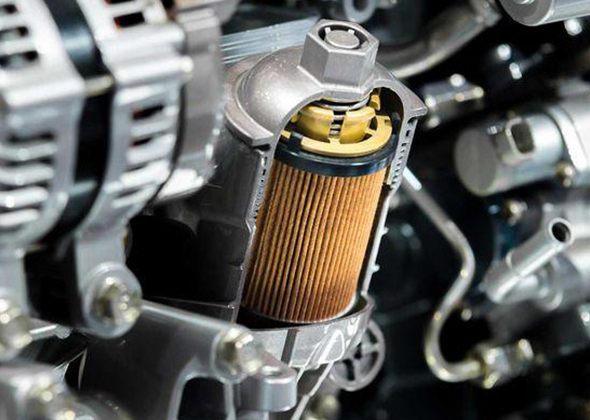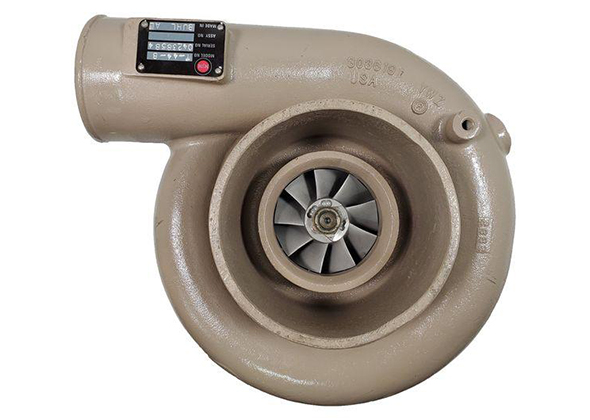Knowing when to change the car’s oil filter is crucial. Replace the oil filter every 3,000 miles or three months. This is a crucial task for the vehicle since it helps keep it operating smoothly and reduces wear and tear. If someone does not change your oil filter on a regular basis, it will eventually clog with spent oil.
As a result, the vehicle’s engine oil may be unable to filter pollutants, resulting in unclean oil. This can cause damage to the engine and force it to shut down.
How Do Oil Filters in Cars Work?
In a car, an oil filter keeps the engine oil flowing while also trapping contaminants and metal particles that would otherwise circulate through the engine. Without it, dirt and other small foreign objects, such as metal particles, can enter the engine assembly freely, resulting in blockages and other debris causing considerable engine damage.
Your vehicle will not move if the damage prevents engine parts from moving. Contaminants may also have an effect on your vehicle’s oil consumption efficiency.
When to Change Oil Filters?

The conventional wisdom of changing the oil and filter every 3,000 miles no longer applies to today’s high-performance engines. Regardless of the vehicle’s unique characteristics, several manufacturers recommended service intervals of 7,500 miles or more. The owner’s manual for the vehicle will specify how frequently one should change the oil and filter.
The driving habits can also influence how frequently someone refills the oil. If someone frequently travels in cities or on short excursions, the oil filter may need to be changed more frequently than someone who drives on the highway. Oil filters change more frequently if someone’s towing a trailer, traveling in harsh weather, or vacationing in the mountains.
The critical aspect of oil filter replacement is to do it before it becomes clogged or unclean enough to cause engine damage. It may extend the life of the engine by replacing the oil filter with a high-quality one.
Every Oil Change
Oil changes are recommended on the majority of modern automobiles every 6,000 or 7,500 miles. The overwhelming majority of mechanics agree that changing the filter when changing the oil in the car is a smart idea. This is because modern engines—and, by extension, filters—are engineered to be exceedingly efficient at removing particles, which results in the filters fouling more quickly.
How Often to Change Oil?
The interval between oil filter changes is determined by a variety of factors. Oil filters, according to several manufacturers, should be replaced every other oil change. Replace your filter every 6,000 miles if someone drives 3,000 miles per day; every 12,000 miles if a driver drives 6,000 miles per day (as most modern vehicles do). Other considerations, however, come into play, and certain mechanical components require more frequent maintenance.
What Does an Oil Change Cost?
The cost of an oil change, as well as the intervals between oil changes, fluctuate. Always read the fine print while watching adverts for $20 oil changes. Typically, these are reserved for conventional oils with a particular viscosity.
Depending on the business, the cost of an oil filter or disposal charges may or may not be included. To be fair, oil filters are often the least expensive component of an oil change service, as the majority of the cost is decided by the type of oil used, the volume of oil used, and finally, labor.
While the vehicle owner can change their own oil for less than $20, a conventional oil change should cost at least $30 and a fully synthetic oil change should cost at least $50. These are the most reasonable prices accessible, and they are offered at national LOF locations, large merchants, and big-box warehouse stores that offer automobile services.
While dealership visits are more costly, they usually include additional services such as tire rotations, fluid top-offs, multi-point inspections, and even a car wash. Additionally, service coupons are offered on a regular basis.
Service Engine Light
If a service engine light comes on while driving, the problem could be as simple as a blocked oil filter! There are various possible explanations for this light to glow, and it is always prudent to eliminate the most basic and least expensive possibilities first. Replacing the filter will reveal whether the issue has been resolved.
Harsh Driving
If someone performs a lot of severe braking and acceleration, stop-and-go city traffic, or travels in inclement weather, he/she may need to have not only the filter be replaced more frequently, but also the oil. When the engine is forced to work more, the oil tends to become dirtier more quickly. As a result, the oil filter will become clogged more quickly.
Vehicle’s Age
The good news is that a maintenance reminder is standard on several newer vehicle models. If keeping track of a schedule or calculating kilometers appears to be too tough, a car owner can rely on the oil life monitor.
If the vehicle features a touchscreen display, an oil life monitoring system is accessible via the instrument panel settings or the vehicle maintenance or service menu.
If the car is older, it may be equipped with a device that monitors the oil life. A car owner can, however, use a dipstick to visually inspect the oil level and cleanliness on a monthly basis.
Oil Used (Synthetic Oil Or Conventional Oil)
Additionally, the type of oil people should use has an effect on how frequently they should replace their oil filters. Regular oil (conventional oil) or synthetic oil, or a combination of the two, may be used.
In terms of durability and performance, synthetic oil trumps regular oil. The new vehicle almost definitely already uses synthetic oil. If the owner has an older car that was originally equipped with conventional oil, he/she can always upgrade to synthetic motor oil.
How Much Does An Oil Filter Replacement Cost?

In an auto shop, a basic oil filter costs between $20 and $125. This replacement cost will be composed of three distinct charges, which will include the following:
- lubricant for engines (varies based on the type of oil used in the car, such as synthetic or regular).
- A new oil filter wholesale for cars has been installed (fuel filter).
- Labor costs in an automobile repair shop.
- Further service fees may apply if the car mechanic discovers additional problems, such as engine wear or a cracked oil pan.
Take note that the oil filter wholesale for cars is something that a car owner should consider if he/she owns lots of cars or vehicles to minimize direct costs.
What Kind of Oil Filter Should You Use?
Oil filters will come in a range of sizes. However, before a car owner purchases an oil filter for their own car, he/she must first determine the type of oil filter to use. This is because each oil filter is manufactured specifically for each vehicle.
If a car owner installs a foreign car’s oil filter in a domestic vehicle, its dashboard will display problems or warnings. As a result, it is critical that one should select the correct oil filter for the car. The majority of oil filters are interchangeable between vehicles of the same brand.
What Does An Oil Filter Change Include?
When maintaining the vehicle, the oil filter and engine oil must be replaced concurrently, whether at a dealership, an auto shop or as a do-it-yourself operation. While a car owner can top off the engine oil if the filter is in good condition, he/she cannot simply change the oil and discard the old filter.
Draining and refilling used oil is inefficient since what goes in clean comes out unclean after passing through the used filter. This is why changing the oil requires more than just replacing the oil.
On service forms, “lube, oil, and filter” are frequently noted as part of the details of an oil change. The old engine oil is completely drained and replaced with new oil, the oil filter is replaced, and the chassis is lubricated during an oil change service. In mechanical parlance, this is referred to as a LOF.
Grease fittings (such as ball joints and tie rods) are places of entry for lubricants into mechanical systems. Lubrication of the chassis is not restricted to engine oil changes, but it does add another layer of protection to keep the suspension functioning smoothly and quietly.
Why Does Oil Filter Need Regular Replacement?
It must be replaced on a regular basis since it filters the car’s used oil. As used oil grows thicker, it becomes more difficult for the car to remove particulate from the oil, clogging the filter. The same oil that clogs the filter also serves to lubricate its engine. As a result, the longer the oil filter takes to drain wasted oil, the more likely it will experience vehicle troubles.
How Often Should A Car Owner Change The Oil Filter?
While the average car owner may change their oil every 3,000 miles or so, it’s still important to know when a car owner should change the filter. The recommended interval varies by manufacturer, but it is typically between 7,500 and 10,000 miles. Failing to replace the filter on time can result in increased engine wear and even damage.
If still unsure how often one should change the oil filter, check the vehicle’s owner’s manual or call the local dealership for more specific recommendations.
To Conclude
Knowing when to change the oil filter as a car owner is a must. Regular inspections of the oil filter are the best way to identify when it should be updated. If there are weird noises or notice a lack of power, it’s time to replace the car. This may prevent one from having to pay for an expensive engine repair.
Additionally, if you’re an auto parts dealer, Sunway Autoparts has the greatest product on the market for replacing your oil filter, so what are you waiting for? Make contact with them immediately! They can be of great help in growing your business.








